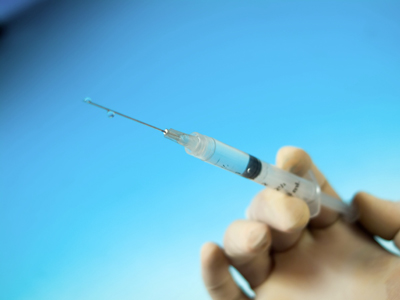
Ask the AI Tutor
Need help with Unit 1 - Antibiotics? Ask our AI Tutor!
AI Tutor - Lucy
Connecting with Tutor...
Please wait while we establish connection

The MMR vaccine protects against what?
Unit 1 - Antibiotics
In this GCSE Biology quiz you will learn how antibiotics treat bacterial infections, why they do not kill viruses, and why careful use helps slow resistance.
1 .
Release of which substance from pathogens makes us feel ill?
Antitoxin
Toxin
Hormone
Enzyme
Toxin is another word for a poisonous substance
2 .
What is agar used for in microbiology?
Provide nutrients for growth
Dilute the bacteria to avoid competition
As an antibiotic to kill unwanted bacteria
To maintain the stability of the solid growth media
It is a gel that is obtained from certain red coloured algae
3 .
The MMR vaccine protects against measles, mumps and which other condition?
Red eye
Rickets
Rhinitis
Rubella
Some people believe that the MMR vaccination does more harm than the diseases it protects against
4 .
What does a pathogen cause?
Addiction
Heart attacks
Disease
Hallucinations
They are things like bacteria, viruses and single celled organisms
5 .
Bacteria in schools are usually cultured at or below which of the following temperatures?
40 degrees C
35 degrees C
25 degrees C
20 degrees C
Culturing bacteria at higher temperatures, especially at or near to body temperature, could lead to the growth of human pathogens. Incubating the petri dishes at this temperature or below reduces the risk. Some schools reduce the risk further by incubating bacteria at room temperature which is usually 20 degrees C or below
6 .
What do white blood cells use to protect us against pathogens?
Antibodies
Platelets
Mucous
Auxin
White blood cells (leucocytes) protect us in a variety of ways including the release of antitoxins and antibodies
7 .
What name is given to sterile handling techniques in microbiology?
Septic
Aseptic
Skeptic
Diagnostic
Aseptic techniques ensure that unwanted bacteria are less likely to be cultured by accident
8 .
Mutation of bacteria can lead to new strains of bacteria which are...
immune to antibiotics
resistant to antibiotics
susceptible to antibiotics
killed by all antibiotics
Mutation in bacteria occurs over short timescales as they reproduce rapidly which is why antibiotic resistant bacteria have developed in just a few decades.
The hard part of this question is to decide whether 'immune to antibiotics' or 'resistant to antibiotics' is the correct option to choose. Medical professionals and the GCSE syllabus all refer to the resistance of bacteria to antibiotics, therefore the option 'resistant to antibiotics' has to be the correct answer. Always remember, some questions in your GCSE exam will test if you know the correct words to use
9 .
Antibiotics are not effective against which of the following?
Bacteria
Viruses
Fungi
Protoctista
Only special anti-viral drugs are effective against viruses
10 .
MRSA is a type of bacteria that is resistant to what?
Antiviral drugs
Antibiotics
Pain killers
Statins
MRSA stands for Methicillin-resistant Staphylococcus aureus
You can find more about this topic by visiting BBC Bitesize - Treating, curing and preventing disease
**Unlimited Quizzes Await You! 🚀**
Hey there, quiz champ! 🌟 You've already tackled today's free questions.
Ready for more?
Ready for more?
🔓 Unlock UNLIMITED Quizzes and challenge yourself every day. But that's
not all...
not all...
🔥 As a Subscriber you can join our thrilling "Daily Streak" against other
quizzers. Try to win a coveted spot on our Hall of Fame Page.
quizzers. Try to win a coveted spot on our Hall of Fame Page.
Don't miss out! Join us now and keep the fun rolling. 🎉
**Unlimited Quizzes Await You! 🚀**
Hey there, quiz champ! 🌟 You've already tackled today's free questions. Ready for more?
🔓 Unlock UNLIMITED Quizzes and challenge yourself every day. But that's not all...
🔥 As a Subscriber you can join our thrilling "Daily Streak" against other quizzers. Try to win a coveted spot on our Hall of Fame Page.
Don't miss out! Join us now and keep the fun rolling. 🎉






